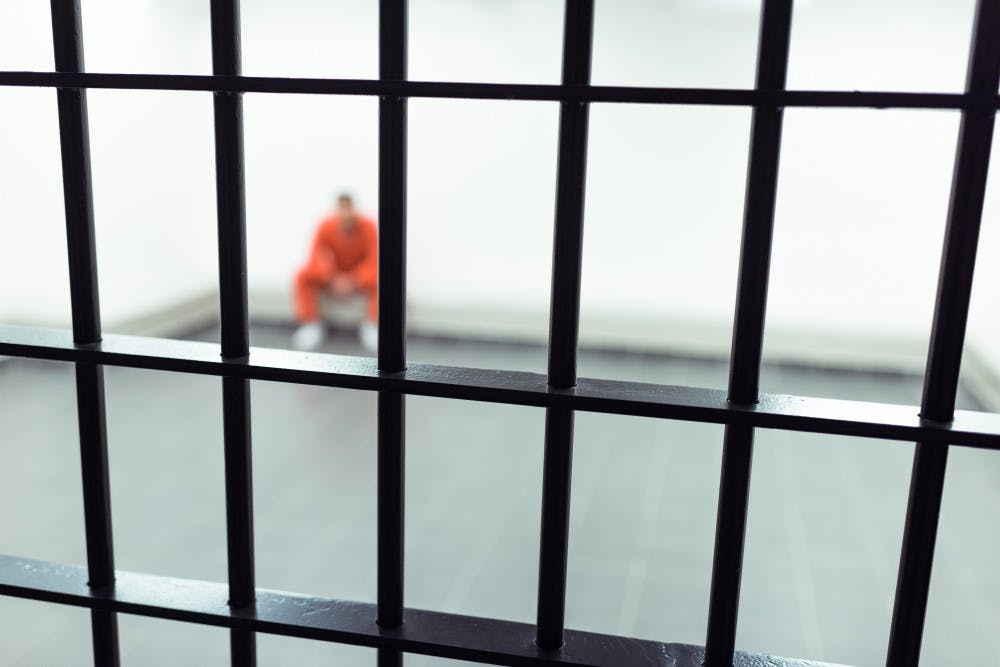By McKenzie Collins
International Editor
Derek Chauvin faces up to 40 years in prison after today's monumental verdict, convicting him of both second and third-degree murder, as well as second-degree manslaughter in the murder of George Floyd, as stated by CBS News. Prosecutors proved that Chauvin killed Floyd “while committing or attempting to commit a related felony” and the jury determined that he was “eminently dangerous to others and evincing a depraved mind, without regard for human life.”

College President Kathryn Foster and Vice President for Inclusive Excellence James A. Felton III released a statement this evening regarding the verdict, in an email to the campus community.
“We know from history, as corroborated by an analysis from the April 19, 2021 New York Times, that cases involving police and Black and Brown people often end without a conviction at trial. Many watching the trial of Derek Chauvin, the former police officer charged with the death of George Floyd, believed that this case would have a different outcome. It had to: the visual evidence was incontrovertible, the brutality unconscionable,” the email stated.
Nearly one year following the murder, the former officer faced trial from March 29 to April 20 for his choice to kneel on the unarmed black man’s neck for approximately 8 minutes and 46 seconds on May 25, 2020, according to the New York Times. The video depicting the horrific scene resulted in public outrage, plucking at the heartstrings of the nation and prompting a historic increase in public awareness of the Black Lives Matter movement.
Chauvin, who has been at home on bail for the duration of the trial, faces the potential 40 years in incarceration due to the second-degree verdict (which typically accounts for the highest sentence of the three charges), as specified by the New York Times. Another factor of the sentence is the opinion of the state, which has asked for the maximum time due to the presence of children, abuse of authority and cruel nature of the crime.
While the verdict was highly anticipated for many Americans, it affected the family of the victim more than anyone. According to CNN, President Biden recognized this in his address with an anecdote about Floyd’s daughter, stating, “I knelt down and held her hand, I said ‘Daddy is looking down at you so proud.’ She said to me then... ‘Daddy changed the world.’” Biden then replied “Daddy did change the world. Let that be his legacy: a legacy of peace, not violence,” referencing criticism of the controversial protests following Floyd’s death.
George Floyd’s brother, Philonise Floyd, was present in the courtroom when the verdict was announced. He later told CNN, “It was difficult just watching the videos over and over and over and over again. I watched my brother being executed day after day, modern day lynching. Sitting in that courtroom, I knew my Lord and savior was in there, and George was in there."
Despite the shift caused by this verdict, as the majority of corrupt officers often walk free, the term “justice” applies loosely. According to the Washington Post, 984 people have been killed in police shootings in the past year. People of color are affected disproportionately, with African Americans accounting for nearly double the amount of white victims. Many are aware that elation from the conviction does not equate to the end of the racial justice movement, or its role in the liberal demand for police reform.
As reported by CNN, the Attorney General of Minnesota, Keith Ellison, reinforced the thoughts of many Americans. “I would not call today's verdict justice, however,” he said, “because justice implies true restoration, but it is accountability, which is the first step towards justice.”
Foster and Felton’s statement encouraged students to continue their activism.
“Our campus so many of you have worked tirelessly this year to listen and learn, confront bias, reform policies and structures, tell your stories, and be the change you want to see in our community. These efforts will continue,” they wrote. “George Floyd’s story is our story. We commit to ensuring that his name and memory live on in our anti-racism work and journey.”







